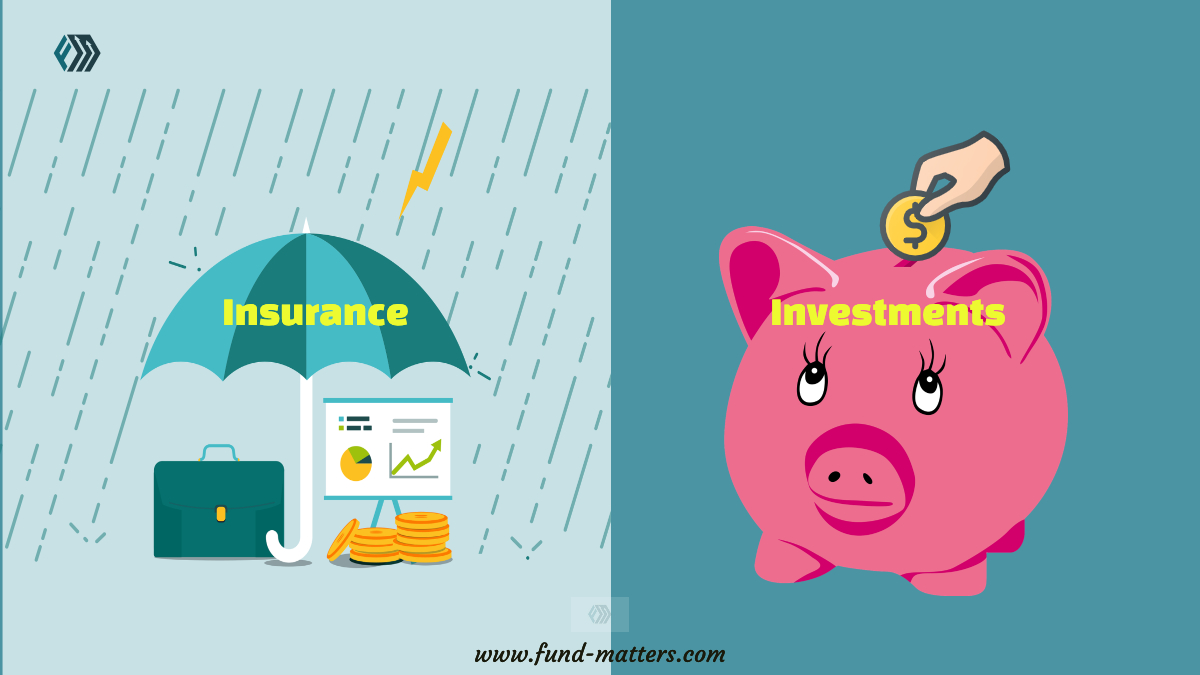Insurance Or Investment: Which comes First?


let’s first understand what personal financial planning or a financial plan is.
What is Personal Financial Planning?
Personal Financial Planning is about money management, saving & investing, insurance, taxation, estate planning etc.
Having a personal financial plan will help to stay disciplined, aligned to your goals and thus achieving the set goals. A financial plan assist you to understand your financials through set financial goals and create a balance for achieving these goals. A prudent financial plan helps to create effective budget, wise spending and also with tax planning.
Major steps in a personal Financial plan
Making a personal financial plan involves 3 to 4 main steps:
- Savings Planning
- Basics Planning
- Investment planning
- Review & Rebalancing
Let’s try to understand above steps in little more details:
1.Savings Planning:
This is the first step in financial planning. Maintaining and recording cash flows, budgeting, finding out unnecessary expenses, cutting down on such expenses and saving more is the first step in the financial planning process. To save money, a right spending plan (income and expenses) is necessary.
Also, there should be a purpose of saving like buying a car/home, child education, marriage etc. Identifying savings purpose will help determine the duration and how much money is required.
2.Basics Planning:
Second stage of financial planning is to cover the ‘basics of personal finance’. Basics means- enough emergency fund, health insurance and term insurance.
Your savings and investments will be unaffected if you have your basics covered adequately for any unexpected emergencies.
- Emergency Fund: Emergency fund should be equivalent to 6 months of expenses. More savings you have in this fund, more equipped you will be for any emergencies or unexpected events.
- Term Insurance: It is a pure form of insurance. It gives full protection against death as well as total & permanent disability. This insurance is a ‘must’ in every financial plan and at any life stage.
- Health Insurance: Health insurance covers you and your family from financial loss due to critical illness, accidents or disability. It also provides income when disabled or covers cost of medical care.
3.Investment planning:
Investment planning is the third component of financial planning. Before making any investments, you need to assess your investor profile means your -Goal, Risk Capacity, Investment Horizon, Taxation, Age, Income source and its stability, Other factors like savings, mode of investment etc.
Accordingly, you can make your investments on the basis of above factors. These factors also help in making a suitable investment portfolio with right asset allocation and diversification.
4.Review and Rebalancing:
This is the last step but equally important. A regular review and rebalancing of investment portfolio keep you on track, align with your goal and asset allocation and help to achieve your financial goals.
Now as you see Insurance is the second step in making a personal finance plan and next comes investments. It means insurance is important to cover before starting your investments. Here is an example to help you understand this better:
Mr. Amol, working in an IT company from last 5 years on a decent salary. He has accumulated a good sum through his savings in his bank account. He is recently got married and living together with his parents. He has invested some money in FD’s and PPF but wants to start investing in mutual funds as he has money in his account. Though he has not considered insurance and not covered his basics even though he is working and have dependents.
There may be situations like accidents or other medical emergencies, which may demand large sum, if any such unfortunate event occurs, he will lose all his savings in the bank or investments in FDs. What if he lost his job? How long he will be able to survive with the savings?
Therefore, Mr. Amol should secure his income and savings against any unfortunate event which can collapse his financial stability. He should take adequate health cover and term cover as he has dependents whom he supports with his income.
Insurance comes under basics (2nd step of financial planning), so with insurance having adequate emergency fund is important.
Insurance purpose is to protect you from financial losses and purpose of investing is to secure your future financially. If your insurance/basics are in place, your savings/investments will be intact in case of any unfortunate event and you will be financially prepared for your present and future, both.
Note: This article is based on one of my Quora answer.



